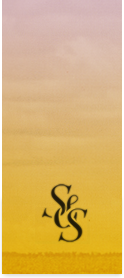
The word for bard in Amharic, the language of Ethiopia, is “azmari.” In the country’s folk music, the azmari performed solo, singing of everything from romantic love to political justice, often accompanied only by a single one-stringed bowed instrument called a masenqo. Even in the 20th century, as Western music made its way to the African nation, the spirit of the azmaris was never forsaken, and many continue to perform in large numbers. Think of them like the singer with an acoustic guitar, artists who tell stories through song.
Mikael Seifu isn’t a traditional azmari. You won’t hear him singing or bowing a string. But Seifu is a storyteller, and on the first track of his new EP Zelalem (released this month by RVNG Intl.), he uses a musical platform to weave together a tapestry of heritage and promise. Seifu is arguably the most promising electronic music producer to emerge from Ethiopia (with earlier origins in Washington D.C.), but it is in Zelalem, that Seifu turns his background into his foreground, in other words using his roots as steps toward self-investigation. On the opening track “The Protectors” he uses a recording of the Civil Rights leader Stokely Carmichael to give us the premise: “The unconscious are those who react on instinct. The conscious are those who react on reason. The job of the conscious is to make the unconscious conscious. Let us make a simple example.”
For Zelalem, Seifu has assembled a pastiche of influences that pull from disparate sources. Under the washed out production of Solipsist, a term for someone who believes all one can ever know is one’s self — one can discern the finger plucking of a Begena, a ten-string harp-like instrument, and possibly sampled from the recordings the Addis Ababa native and Begena player Kassa Tessema. On the following track, the familiar and soulful sound of a fretless bass and hi-end beat are charted by verses from the rapper L.A. The influences coalesce in the paired tracks “How to Save a Life (Vector of Eternity),” and “ዘላለም (Vector of Light),” where an orchestra of Ethiopian instruments led by the masenqo dance with head-nodding beats and lines from a very un-traditional instrument, the synthesizer.
S&S reached out to Seifu about shedding light on the sounds that went into the making of Zelalem. The producer, who recently posted a 50-min mixtape of Ethiopian folk music to his Soundcloud (embedded above), shared with us five YouTube videos—showcasing everything from traditional Ethiopian tunes to lyrically lush French rap—and provided commentary for each. Here’s what he had to say:
Ethiopian Folk (in general)
“The video above demonstrates commercial mutations of traditional Ethiopian folk. I was listening indiscriminately to numerous styles of Ethiopian music from all over.”
IAM
“French hip-hop group. Aside from sharing a similar passion for eastern culture, their texts are more poetry than plain lyrics. They spread positivity and I just love the way they express their ideals.”
Bahiru Kagne
“One of the artists I got into while working on the mixtape.”
Kassa Tessema
“Heavily renowned locally. His song “Music” is what pulled me towards his style. I remember making some sort of interpretation of it.”
Addis Acoustic Project
“There is just something about their voicings and phrasings that makes me gravitate back to their sound.”
____
Thanks, Mikael. Zelalem is out now on 12″, bundled with the physical mixtape, via RVNG Intl.




